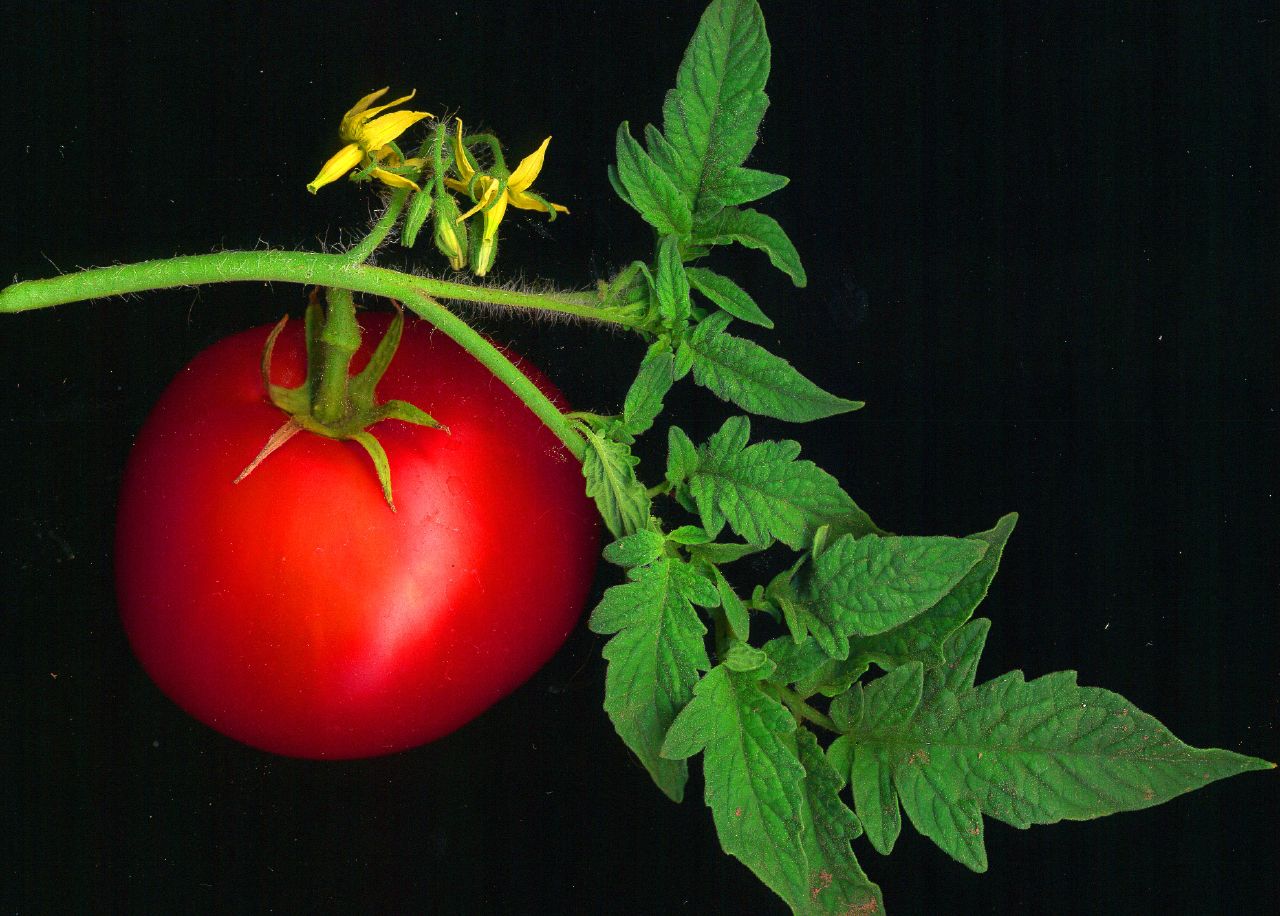 (pic courtesy of David Besa)
(pic courtesy of David Besa)As the sun starts a'beating down, many of us dream of some good, relaxing sun-filled afternoons! And the media pelts us with two sides of the issue: sunscreen.
One side proclaims that we need to let the sun come! Many people are deficient in Vitamin D, and the sun is a way to naturally trigger your body's production.
On the other side, too much sun may put you at risk for skin cancer.
What, oh what, is a person to do?
Eat tomatoes, of course!
*Huh? *
Several studies have been done looking at protecting the skin via diet, and what components may offer protection. Antioxidants are, of course, an important component in health, maintaining skin integrity and cell health - keeping you healthy and younger looking. But some studies are looking more specifically than that.
One study had participants eat tomato paste daily for 4 or 10 weeks, and saw less erythema, or reddening of the skin when exposed to UV light in BOTH groups. Yup, less propensity towards burning by 35%! Nice!

You probably don’t need to be slurping paste – they were using that in their study, but they noticed higher levels of serum lycopene and total carotenoids in the skin – things that you can raise through any form of tomato intake (the deeper the red, the better), and pushing some of your other orange foods too – like carrots and squash! If you go with ketchup – a staple during the wonderful grilling season! – see if you can find Organic. It has been found to far surpass conventional ketchup for lycopene content.
Whichever form, DO try to combine it with a little bit of healthy fat as this will help you absorb more of the fat-soluble carotenoids. In fact! Selenium, a mineral found in Brazil nuts, has ALSO been shown to have sun-protective effects!
At the University of Dundee in Scotland, another study was done looking at phytochemicals as protectors. They were looking at phytochemicals with fun ‘n’ fancy names like alkaloids, flavonoids, carotnoids, and isothiocyanates. “These phytochemicals have been consumed by humans for many centuries as part of plant-rich diets and are presumed to be of low toxicity, an essential requirement for a chemoprotective agent. Mechanistically, they affect multiple signalling pathways and protect against UV radiation-inflicted damage by their ability to act as direct and indirect antioxidants, as well as anti-inflammatory and immunomodulatory agents.” So some of their excitement is in the fact these are all plant-based components – which means more natural and pretty darn hard to overdose on! (Now don’t any of you run off and drink 5 straight gallons of tomato juice just to prove I’m wrong! BALANCED EATING, my dear! You CAN overdose on water too – just so ya’ll know that NOTHING should be over consumed!)
So in the study, they turn to produce for these phytochemicals. Cool bonus? Unlike sunscreen, which – in blocking your skin from the UV light – blocks your body’s ability to synthesize much-needed vitamin D, protection from foods “is comprehensive, long-lasting, and unlikely to cause pro-oxidant effects or interfere with the synthesis of vitamin D.”
There are a slew of other foods that can also offer you protection from the potential damage caused by UV sunlight: raspberries and blueberries, cherries, and citrus all contain various health properties. Green tea and its epigallocatechins block damage. So keep up with your fresh food – you never know when another study will come out showing other benefits to produce!
So, rather than slathering yourself with chemical-packed sunscreens (and your skin - your largest organ - just loooves to absorb things that are rubbed on it!) make sure you're keeping a good, steady supply of lycopene- and carotenoid-rich foods in your daily consumption even before beach-season!
Well, ok, not too rich - if your skin starts getting slightly red-orange even before hitting the beach, you may have had more than ya need! But don't worry – “lycopenodermia,” when your skin takes on a deep orange discoloration, is a harmless, reversible coloring that lessens if you cut back on your lycopene intake.
Of course, always remember - YOU know YOU best! If you have fair skin, weight the cost/benefits of diet and sunscreen. Perhaps with some precautions, you can just use less or lower powered sunscreen, for example – and less chemically-hazardous ones. Burnt-dead skin is not a pleasant feeling!
So later, I’ll post a little bit about picking a sunblock should you choose one. Just in time for Memorial weekend!
Have an amazing evening and wonderful Memorial Day!
~Katie
I have found some really great natural products with My Life Vantage. They use indirect antioxidants to reverse the signs of aging.
ReplyDeleteThanks for sharing, Richey! I haven't heard of that brand before - and without doing my background research, I am often hesitant to support any sort of pill popping, or application of chemicals (we're all about natural here!) ;-) So I'll have to look more into that web page to see what it looks like!
ReplyDelete